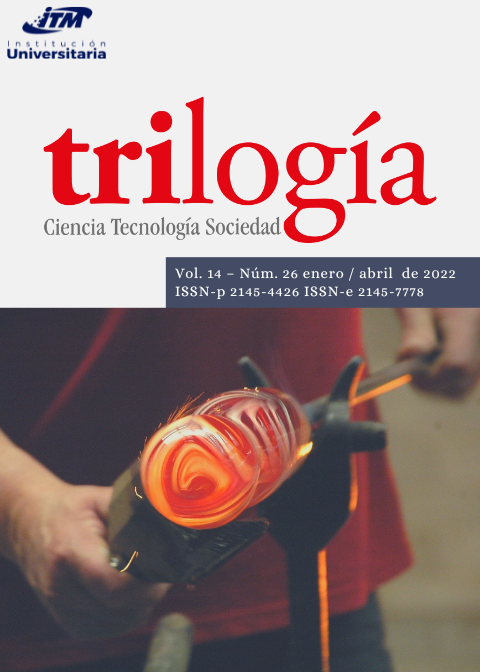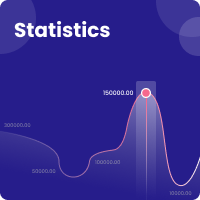From Scientific Literacy to Public Understanding of Science
Abstract
This paper seeks to exhaustively analyze the literature on public understanding of science and scientific literacy, as well as their different approaches, particularly publications in specialized journals. The aim is to argue that public understanding of science has a broader and clearly defined theoretical component and constitutes the evolution of scientific literacy, which emerged as a curricular model aimed at overcoming the model of educational deficit in the United States after the launch of the first Sputnik satellite by the Russians. For this purpose, around 160 research articles in the field were reviewed. This made it possible to validate the hypothesis that public understanding of science represents the evolution of a paradigm that transferred the image of the scientific concepts and processes necessary for personal decision-making in cultural matters to promote economic productivity.
References
Acevedo Díaz, J. A. (2004). Reflexiones sobre las finalidades de la enseñanza de las ciencias: educación científica para la ciudadanía. Revista Eureka sobre Enseñanza y Divulgación de las Ciencias, v. 1, n. 1, 3-16. https://www.redalyc.org/pdf/920/92010102.pdf
Acevedo-Díaz, J. A., Aragón-Méndez, M. M., García-Carmona, A. (2018). Comprensión de futuros profesores de ciencia sobre aspectos epistémicos de la naturaleza de la ciencia en cuatro controversias de historia de la ciencia. Revista Científica, v. 33, n. 3. 344-355. https://doi.org/10.14483/23448350.13355
Acevedo-Díaz, J. A., García-Carmona, A., Aragón-Méndez, M. M., Oliva-Martínez, J. M. (2017). Modelos científicos: significado y papel en la práctica científica. Revista Científica, v. 30, n. 3, 155-166. https://doi.org/10.14483/23448350.12288
Alcíbar, M. (2015). Comunicación pública de la ciencia y la tecnología: una aproximación crítica a su historia conceptual. Arbor, v. 191, n. 773, a242. https://doi.org/10.3989/arbor.2015.773n3012
Ballesteros-Ballesteros, V., Gallego-Torres, A. P. (2019). La educación en energías renovables desde las controversias socio-científicas en la educación en Ciencias. Revista Científica, v. 35, n. 2. 192-200. https://doi.org/10.14483/23448350.14869
Bauer, M. W. (2009). The Evolution of Public Understanding of Science—Discourse and Comparative Evidence. Science, Technology and Society, v. 14, n. 2, 221-240. https://doi.org/10.1177/097172180901400202
Bauer, M. W., Gregory, J. (2007). From journalism to corporate communication in post-war Britain. En M. W. Bauer, M. Bucchi (eds.), Journalism, Science and Society: Science Communication between News and Public Relations (pp. 33-51). Routledge.
Bonney, R., Phillips, T. B., Ballard, H. L., Enck, J. W. (2016). Can citizen science enhance public understanding of science? Public Understanding of Science, v. 25, n. 1, 2-16. https://doi.org/10.1177/0963662515607406
Bucchi, M., Saracino, B. (2016). “Visual Science Literacy”: Images and Public Understanding of Science in the Digital Age. Science Communication, v. 38, n. 6, 812-819. https://doi.org/10.1177/1075547016677833
Bybee, R. W. (1997). Towards an Understanding of Scientific Literacy. En W. Gräber, C. Bolte (eds.), Scientific literacy: An international symposium (pp. 37-68). Institüt für die Pädagogik der Naturwissenschaften.
Cámara Hurtado, M., López Cerezo, J. A. (2007). Dimensiones de la cultura científica. En Percepción Social de la Ciencia y la Tecnología en España (pp. 39-64). Fundación Española para la Ciencia y la Tecnología. https://icono.fecyt.es/sites/default/files/filepublicaciones/18/libro_psc06.pdf
Clément, J. P. (1994). Las instituciones científicas y la difusión de la ciencia durante la Ilustración. Ediciones Akal.
Cobern, W. W., Aikenhead, G. (1997). Cultural Aspects of Learning Science. Scientific Literacy and Cultural Studies Project, 1-20. https://scholarworks.wmich.edu/science_slcsp/13
Dávila-Rodríguez, L. P. (2020). Apropiación social del conocimiento científico y tecnológico. Un legado de sentidos. Trilogía Ciencia Tecnología Sociedad, v. 12, n. 22, 127-147. https://doi.org/10.22430/21457778.1522
DeBoer, G. E. (2000). Scientific Literacy: Another Look at Its Historical and Contemporary Meanings and Its Relationship to Science Education Reform. Journal of Research in Science Teaching, v. 37, n. 6, 582-601. https://doi.org/10.1002/1098-2736(200008)37:6<582::AID-TEA5>3.0.CO;2-L
Durant, J. (1994). What is scientific literacy? European Review, v. 2, n. 1, 83-89. https://doi.org/10.1017/S1062798700000922
Einsiedel, E. (2007). Editorial: Of publics and science. Public Understanding of Science, v. 16, n. 1, 5-6. https://doi.org/10.1177/0963662506071289
Estany, A. (2006). Introducción a la filosofía de la ciencia. Universitat Autònoma de Barcelona.
Fourez, G. (1997). Alfabetización científica y tecnológica: acerca de las finalidades de la enseñanza de las ciencias. Ediciones Colihue.
Gallego Torres, A. P. (2019). El compromiso público de la difusión de la ciencia y la tecnología. Revista Científica, v. 34, n. 1, 5-6. https://doi.org/10.14483/23448350.14309
Gallego Torres, A. P., Zapata, J., Rueda Pinto, M. (2009). Una alfabetización científica tecnológica y cultural. Revista Científica, n. 11, 52-61. https://doi.org/10.14483/23448350.411
Gil, D., Vilches, A. (2001). Una alfabetización científica para el siglo XXI: obstáculos y propuestas de actuación. Revista Investigación en la Escuela, n. 43, 27-37. https://revistascientificas.us.es/index.php/IE/article/view/7667
Godin, B., Gingras, Y. (2000). What is scientific and technological culture and how is it measured? A multidimensional model. Public Understanding of Science, v. 9, n. 1, 43-58. https://doi.org/10.1088/0963-6625/9/1/303
Hazen, R. M., Trefil, J. S. (1991) Achieving Chemical Literacy. Journal of Chemical Education, v. 68, n. 5, 392-394. https://doi.org/10.1021/ed068p392
Hofstein, A., Eilks, I., Bybee, R. (2011). Societal issues and their importance for contemporary science education—A pedagogical justification and the state-of-the-art in Israel, Germany, and the USA. International Journal of Science and Mathematics Education, v. 9, n. 6, 1459-1483. https://doi.org/10.1007/s10763-010-9273-9
Holbrook, J., Rannikmae, M. (2009). The Meaning of Scientific Literacy. International Journal of Environmental & Science Education, v. 4, n. 3, 275-288. http://www.ijese.net/makale/1394.html
Hurd, P. D. (1958). Science Literacy: Its Meaning for American Schools. Educational Leadership, v. 16, n. 1, 13-16-52.
Hurd, P. D. (1998). Scientific literacy: New minds for a changing world. Science Education, v. 82, n. 3, 407-416. https://doi.org/10.1002/(SICI)1098-237X(199806)82:3<407::AID-SCE6>3.0.CO;2-G
Jasanoff, S. (2003). (No?) Accounting for expertise. Science and Public Policy, v. 30, n. 3, 157-162. https://doi.org/10.3152/147154303781780542
Jenkins, E. W. (1994). Scientific literacy. En T. Husen, T. N. Postlethwaite (eds.), The International Encyclopedia of Education (2da ed., Vol. 9, pp. 5345-5350). Pergamon Press.
Kuhn, T. S. (2013). La estructura de las revoluciones científicas (4ta ed.). Fondo de Cultura Económica.
Kyle Jr., W. C. (1995). Scientific Literacy: Where Do We Go From Here? Journal of Research in Science Teaching, v. 32, n. 10, 1007-1009. https://doi.org/10.1002/tea.3660321003
Laugksch, R. C. (1999). Scientific literacy: A conceptual overview. Science Education, v. 84, n. 1, 71-94. https://doi.org/10.1002/(SICI)1098-237X(200001)84:1<71::AID-SCE6>3.0.CO;2-C
Layton, D., Jenkins, E., Donnelly, J. (1994). Scientific and Technological Literacy. Meanings and Rationales: An Annotated Bibliography. University of Leeds.
Layton, D., Jenkins, E., Macgill, S., Davey, A. (1993). Inarticulate Science?: Perspectives on the Public Understanding of Science and Some Implications for Science Education. Studies in Education.
Lederman, N. G. (2018). La siempre cambiante contextualización de la naturaleza de la ciencia: documentos recientes sobre la reforma de la educación científica en los Estados Unidos y su impacto en el logro de la alfabetización científica. Enseñanza de las Ciencias, v. 36, n. 2, 5-22. https://doi.org/10.5565/rev/ensciencias.2661
Lewenstein, B. V. (1992). The meaning of ‘public understanding of science’ in the United States after World War II. Public Understanding of Science, v. 1, n. 1, 45-68. https://doi.org/10.1088/0963-6625/1/1/009
Martín Gordillo, M., Osorio M. C. (2003). Educar para participar en ciencia y tecnología. Un proyecto para la difusión de la cultura científica. Revista Iberoamericana de Educación, v. 32, 165-210. https://doi.org/10.35362/rie320927
Membiela, P. (ed.). (2002). Enseñanza de las Ciencias desde la perspectiva Ciencia-Tecnología-Sociedad: formación científica para la ciudadanía. Narcea Ediciones.
Membiela, P. (2007). Sobre la deseable relación entre comprensión pública de la ciencia y alfabetización científica. TED: Tecné, Episteme y Didaxis, n. 22, 107-112. https://doi.org/10.17227/ted.num22-383
Miller, J. D. (1983). Scientific Literacy: A Conceptual and Empirical Review. Daedalus, v. 112, n. 2. 29-48. http://www.jstor.org/stable/20024852
Miller, J. D. (1992). Toward a scientific understanding of the public understanding of science and technology. Public Understanding of Science, v. 1, n. 1, 23-26. https://doi.org/10.1088%2F0963-6625%2F1%2F1%2F005
Miller, S. (2001). Public understanding of science at the crossroads. Public Understanding of Science, v. 10, n. 1, 115-120. https://journals.sagepub.com/doi/abs/10.3109/a036859
Niaz, M. (2016). History and philosophy of science as a guide to understanding nature of science. Revista Científica, v. 24, n. 1, 7-16. https://doi.org/10.14483/udistrital.jour.RC.2016.24.a1
Núñez Jover, J. (1999). La ciencia y la tecnología como procesos sociales. Lo que la educación científica no debería olvidar. Editorial Félix Varela.
Roberts, D. A (1983). Scientific Literacy: Towards Balance in Setting Goals for School Science Programs. A Discussion Paper. Science Council of Canada.
Roberts, D. A. (2007). Scientific Literacy/Science Literacy. En S. K. Abell, N. G. Lederman (eds.), Handbook of Research on Science Education (pp. 729-780). Lawrence Erlbaum Associates.
Rychen, D. S., Salganik, L. H. (eds.). (2003). Key Competencies for a Successful Life and a Well-Functioning Society. Hogrefe & Huber Publishers.
Sasseron, L. H, Pessoa de Carvalho, A. M. (2011). Alfabetização científica: uma revisão bibliográfica. Investigações em Ensino de Ciências, v. 16, n. 1, 59-77. https://www.if.ufrgs.br/cref/ojs/index.php/ienci/article/download/246/172
Serna-Rosell, C., Vílchez-González, J. M. (2018). Estereotipos científicos: percepción del alumnado de un centro de adultos de Granada (España). Revista Científica, v. 32, n. 2, 169-182. https://doi.org/10.14483/23448350.12799
Shamos, M. H. (1995). The Myth of Scientific Literacy. Rutgers University Press.
Sinatra, G. M., Kienhues, D., Hofer, B. K. (2014). Addressing Challenges to Public Understanding of Science: Epistemic Cognition, Motivated Reasoning, and Conceptual Change. Educational Psychologist, v. 49, n. 2, 123-138. https://doi.org/10.1080/00461520.2014.916216
Sturgis, P., Allum, N. (2004). Science in Society: Re-evaluating the deficit model of public attitudes. Public Understanding of Science, v. 13, n. 1, 55-74. https://doi.org/10.1177/0963662504042690
The Royal Society. (1985). The Public Understanding of Science. https://royalsociety.org/~/media/royal_society_content/policy/publications/1985/10700.pdf
Thomas, G., Durant, J. (1987). Why should we promote the public understanding of science? Scientific Literacy Papers, 1-14. https://ocw.mit.edu/courses/science-technology-and-society/sts-014-principles-and-practice-of-science-communication-spring-2006/readings/durant_promote.pdf
Torres Albero, C. (1993). El problema de la ciencia como institución social. Revista Internacional de Sociología, n. 4, 161-181.
Tsai, C.- Y. (2018). The effect of online argumentation of socio-scientific issues on students' scientific competencies and sustainability attitudes. Computers & Education, v. 116, 14-27. https://doi.org/10.1016/j.compedu.2017.08.009
Vaccarezza, L. S. (2009). Estudios de cultura científica en América Latina. Redes, v. 15, n. 30, 75-103. http://ridaa.unq.edu.ar/handle/20.500.11807/415
Vázquez-Alonso, A., Acevedo-Díaz, J. A., Manassero Mas, M. A. (2005). Más allá de la enseñanza de las ciencias para científicos: hacia una educación científica humanística. Revista Electrónica de Enseñanza de las Ciencias, v. 4, n. 2, 1-30. http://reec.uvigo.es/volumenes/volumen4/ART5_Vol4_N2.pdf
Vilches Peña, A., Solbes Matarredona, J., Gil Pérez, D. (2004). Alfabetización científica para todos contra ciencia para futuros científicos. Alambique: Didáctica de las Ciencias Experimentales, n. 41, 89-98. http://hdl.handle.net/11162/21644
Wynne, B. (1993). Public uptake of science: a case for institutional reflexivity. Public Understanding of Science, v. 2, n. 4, 321-337. https://doi.org/10.1088/0963-6625/2/4/003
Ziman, J. (1991). Public understanding of science. Science, Technology, & Human Values, v. 16, n. 1, 99-1
Downloads
Copyright (c) 2021 Instituto Tecnológico Metropolitano

This work is licensed under a Creative Commons Attribution-NonCommercial-ShareAlike 4.0 International License.










